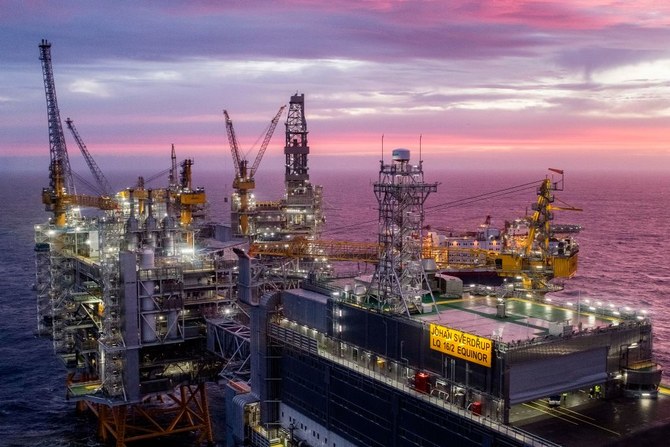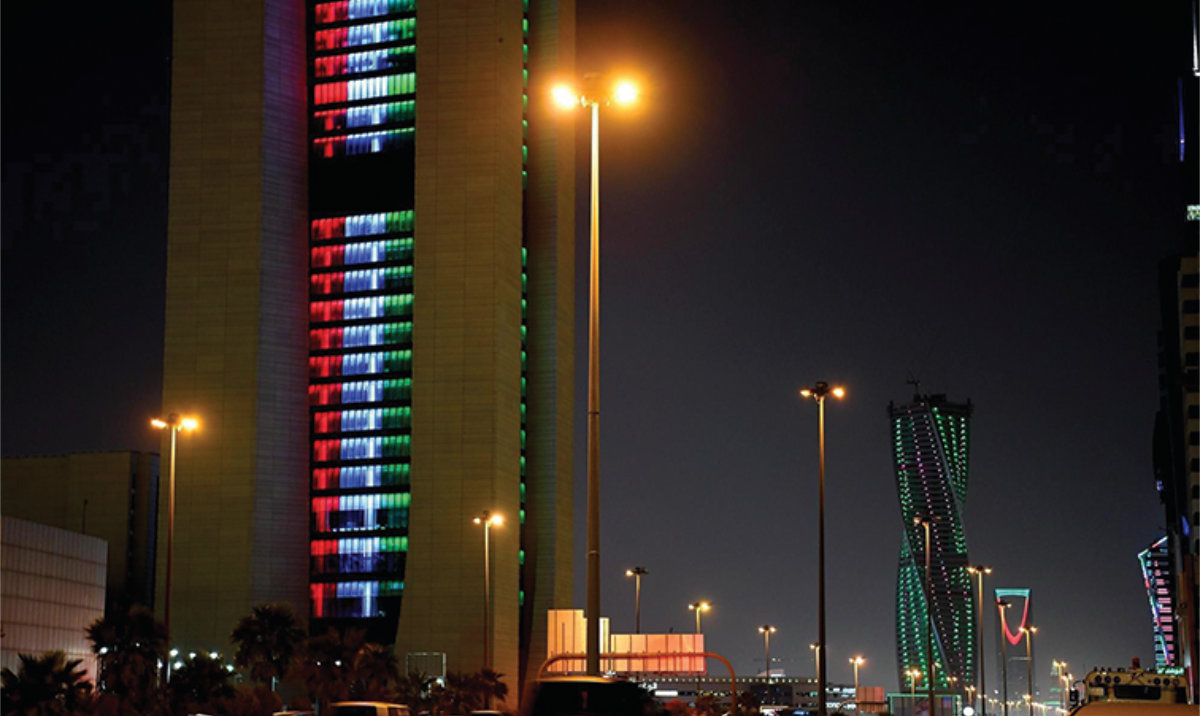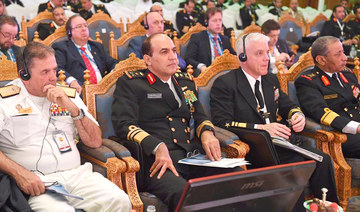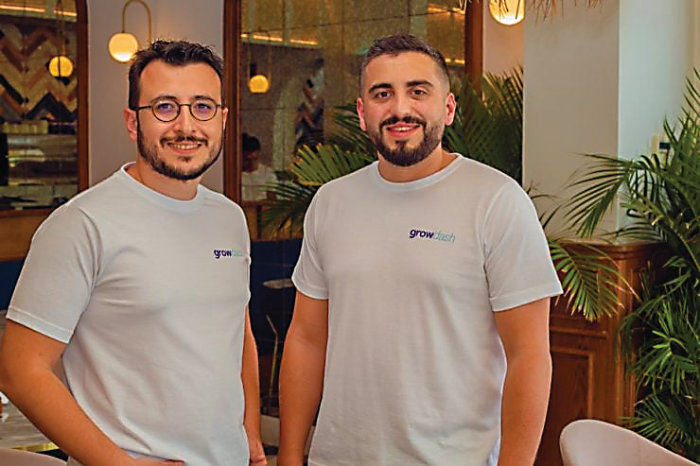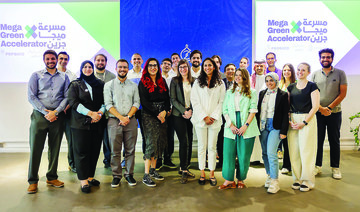RIYADH: Space exploration has transitioned from being solely government-driven to becoming an essential element of our everyday lives, significantly enhancing our quality of life.
Saudi Arabia is charting a course toward the stars, propelled by an audacious vision that extends far beyond terrestrial boundaries. Vision 2030 envisions the Kingdom as a formidable player in the global arena of space exploration and technology.
In an interview with Arab News, Amar Vora, head of space at Serco Middle East, noted that the genesis of Saudi Arabia’s cosmic aspirations can be traced back to 1985, with the historic journey of Saudi Prince Sultan bin Salman Al-Saud and the launch of Arabsat-1A.
“Let’s not forget the impressive achievements of the King Abdulaziz City for Science and Technology, which has been helping to shape the national vision in space, building up knowledge, capacity, and infrastructure for over 20 years,” he said.
Vora highlighted the 17 satellites launched by KACST since 2000, along with the Saudi Space Agency’s formation from the Saudi Space Commission.
He added: “Space endeavors are no longer an exclusive playground for government; it is increasingly becoming a key component of our day-to-day lives, positively impacting our quality of life.”
Pioneering achievements
Saudi Arabia’s journey into space began decades ago, and since then, the Kingdom has achieved remarkable milestones.
Notably, the landmark partnership with Axiom Space marked a significant milestone, as astronauts Rayyanah Barnawi and Ali Al-Qarni embarked on the Ax-2 mission to the International Space Station in 2023.
Barnawi became the first Saudi woman to journey into space, symbolizing Saudi Arabia’s commitment to gender equality and inclusivity in the realm of space exploration.
Commenting on this endeavor, Vora said: “Of course, the Ax-2 mission provided the space community with a flavor of what’s to come from KSA’s space ambitions, becoming one of only a few countries to have achieved human spaceflight, and that in record time since the Saudi space decree was ratified!”
He went on saying that partnerships with companies like Axiom Space “that are transforming and democratizing access to human spaceflight, highlight the ability of CST and SSA to capitalize on innovative solutions and services in the market.”
Vora commended Barnawi’s efforts and said that this “is what we should come to expect from the Saudi and the global space sector. This is a sector that provides equitable representation and inspires and encourages engagement from people of all backgrounds and genders.”
Saudi Space Agency
The Saudi Space Agency oversees the formulation and execution of the National Space Strategy, aimed at positioning the Kingdom as a leading spacefaring nation.
Vora explained: “In doing so, SSA will be required to develop national capabilities in space, across the space value chain, from upstream (satellite systems and technologies), midstream (ground systems and operations), to downstream (data management and value-added services). The agency will also be responsible for promoting the uptake of space data across government and industries.”
According to the top official, these advancements necessitate industry support for design, delivery, and operation, giving the agency a mandate to foster private sector expansion.
This entails partnerships and investments with companies of varying sizes and backgrounds, both domestic and international, facilitated by the establishment of the National Space Co.
“In implementing the strategic vision, SSA also has a key role to collaborate with international partners, leveraging international and long-standing experience and capabilities, with mutual interests in achieving scientific excellence,” Vora said.
Ambitions beyond earth
Yet, Saudi Arabia’s cosmic ambitions extend far beyond the confines of earth’s atmosphere.
With plans to develop a robust astronaut corps, participate in lunar exploration missions, and foster a thriving commercial space sector, the Kingdom is poised to carve out a formidable presence in the cosmos.
Saudi Arabia is set to play a crucial role in the entire space value chain, focusing on localizing satellite technology production, enhancing space situational awareness, and utilizing space data for various sectors, including climate-related initiatives, according to Serco.
A new report by the World Economic Forum predicts that the global space economy could reach $1.8 trillion by 2035, rivaling the semiconductor industry.
Space technologies, like communications and earth observation, are expected to become as integral to daily life as semiconductors.
The report emphasized that space will increasingly connect people and goods across industries, with benefits extending beyond financial gains to include addressing global challenges.

Space endeavors are no longer an exclusive playground for government; it is increasingly becoming a key component of our day-to-day lives.
Amar Vora, head of space at Serco Middle East
“Intensified collaboration between diverse stakeholders from the public and private sectors will be key to unlocking and maximizing the industry’s exponential potential for years to come,” it added.
From satellite manufacturing to space tourism, the Kingdom is primed to capitalize on the burgeoning space industry, diversifying its economy and driving innovation.
Abdullah Al-Dawsari, who is an aerospace and defense project manager, told Arab News that “Saudi Arabia has the opportunity to leapfrog in key emerging areas of the space economy.”
He said that this could be done through “strategically investing in next-generation capabilities by developing advanced satellite manufacturing using robotics, 3D printing, modular designs, offering low-cost launch services and rocket manufacturing by innovating in materials, propulsion, and reusability.”
He added: “Providing innovative incentives like grants, tax benefits, and funding opportunities for research and development in the space sector and removing bureaucratic barriers can further stimulate the industry.”
“Ultimately, space is becoming a cornerstone for economic growth, and this is exactly the vision and direction we are seeing from Saudi’s recent strides in space,” Serco’s top official said.
The economic benefits of space exploration are manifold, according to Vora. Space technologies and data are critical assets for numerous industries, including agriculture, mobility, environment, defense, and many others.
“We are seeing that space-enabled services have a role in the Saudi giga projects; for example, we see increased awareness, interest, and uptake from NEOM, Red Sea Global, and others,” he said.
Economist and policy adviser, Mahmoud Khairy, said in an interview with Arab News that Saudi Arabia’s endeavors in space “isn’t just about reaching for the stars; it’s about building a smarter economy.”
He added: “By venturing into space, Saudi Arabia aims to not only boost its global standing but also inspire young Saudis to pursue careers in science and tech. It’s all part of a bigger plan to transform the economy, putting the Kingdom on the map as a leader in space exploration while paving the way for a brighter, more sustainable future.”
Regulatory framework
The Communications and Space Technology Commission has recently released regulations and a permit application to encourage private sector involvement in the earth observation services market. This initiative aims to boost GDP through value-added products.
The Communications and Space Technology Commission has recently released regulations and a permit application to encourage private sector involvement in the earth observation services market, aiming to boost gross domestic product through value-added products.
The initiative will grant permits to entities establishing EO platforms, facilitating data collection and processing. The documents outline requirements for applicants and emphasize user rights and data security. Interested parties are encouraged to review and apply for the permit.
Key initiatives, such as the Center of Excellence for Earth and Space Science and the Center of Excellence for Aeronautics and Astronautics, underscore Saudi Arabia’s commitment to fostering world-class capabilities in space technology and research.
Moreover, strategic partnerships with leading space agencies and organizations propel the Kingdom’s space aspirations to new heights.
Vora emphasized that “strategic partnerships are essential in realizing the vision of the space sector in Saudi Arabia.”

Saudi Arabia’s endeavors in space isn’t just about reaching for the stars; it’s about building a smarter economy.
Mahmoud Khairy, economist and policy adviser
He added: “For an emerging space-faring nation, partnerships enable effective knowledge transfer and opportunities to learn from past successes and failures. It allows the ability to share resources, risk, and infrastructure, advance scientific and technological research, and gain access to state-of-the-art innovations from a global ecosystem.”
Vora explained that the most famous and widely referenced example of international partnerships and collaboration is the International Space Station, where it showcases the benefits of national collaboration.
He went to say: “Private space companies providing both B2G (business to government) and B2B (business to business) services are now the norm, along with the utilization of space data-driven solutions across adjacent industries.”
He went on explaining that this can be done by “introducing advanced technologies and services such as high-resolution imaging, data analytics for climate monitoring, urban planning solutions, and defense and security applications.”
Al-Dawsari added: “Private companies, with their flexibility and innovative approaches, can significantly contribute to the space industry.”
Private sector involvement in Saudi Arabia’s space industry has key implications for economic growth. It drives innovation, creates jobs, and attracts foreign investment, enhancing the Kingdom’s global competitiveness, according to Khairy.
A unique cosmic identity
Beyond scientific and economic gains, Saudi Arabia’s cosmic journey holds profound societal implications.
By inspiring the next generation of scientists, engineers, and explorers, the Kingdom is cultivating a legacy of innovation and discovery that transcends borders.
“Beyond the clear economic benefits of Saudi’s endeavors in space, it undoubtedly has an impact on society,” Vora noted.
National space endeavors along with international collaboration provides a catalyst for engagement in STEM fields through inspiration and integration into education, he highlighted.
Vora added: “It’s great to see the mandate imposed by KSA last year to integrate space and earth sciences into secondary education curricula.”
As Saudi Arabia ventures into space, the Kingdom remains committed to promoting sustainability and responsible stewardship of the cosmos.
Sustainability comes in various forms in relation to Saudi’s space policy, according to Vora.
“First, it’s KSA’s vision to create a sustainable, localized space industry and ecosystem — this requires support from the government in establishing an industry with long-term market opportunities,” he explained.
Vora went on saying: “It’s how the national space program contributes toward Saudi’s vision to be a leader in environmental and climate sustainability. It’s what I call sustainability from space.”
As space access becomes easier and launches more frequent, our space environment faces congestion and the risk of debris colliding with satellites. Improved technologies, regulations, and in-orbit solutions are needed to monitor and mitigate space debris.
“Saudi space policy demonstrates leadership in this domain, enhancing the Kingdom’s role in the sustainability of space through investment in technologies to track and monitor space debris,” Vora emphasized.
Khairy highlighted that space exploration requires a “whole army” of experts, from scientists and engineers to technicians and support staff.
“As the space industry grows, so does the need for all sorts of services, from manufacturing to transportation. That means more jobs for Saudis across the board,” he added.
Sovereign wealth funds
The pivotal role of sovereign wealth funds has become increasingly apparent in recent times, particularly in the Middle East.
They have spearheaded economic diversification efforts, as reported by Euroconsult, a consulting firm specializing in the space sector.
The report added: “Prominent funds like the UAE-based Mubadala Investment Company, the Saudi Public Investment Fund (PIF), and the Oman Investment Authority (OIA) have allocated substantial resources to finance local, regional and international space projects and companies.”
Notable examples include partnerships like the one between Saudi Telecom Co. and PIF to establish IoT Squared, a technology firm specializing in the Internet of Things, as well as OIA’s acquisition of an equity stake in SpaceX.
These investments not only support local, regional, and international space projects and companies but also bring tangible benefits to the countries involved, the report added.
Economist Khairy said that the PIF is “already planning to invest heavily in the space sector and could be a major player in funding the Kingdom’s space dreams.”
He added: “With its hefty financial resources and focus on long-term investments, it could provide the cash needed to launch satellites, conduct research, and build space infrastructure. Plus, investing in space could boost Saudi Arabia’s global reputation and competitiveness, drawing in even more investment and talent.”
“When Saudi Arabia aims for the stars, it’s not just about the thrill of discovery; it’s about building a brighter economic future right here at home,” Khairy concluded.



